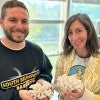
Ancient viruses discovered in coral symbionts’ DNA
Rice bioscientists have discovered fragments of ancient RNA viruses in the genomes of the symbiotic organisms that live inside corals and provide them with their dramatic colors.

Ancient viruses discovered in coral symbionts’ DNA
Rice bioscientists have discovered fragments of ancient RNA viruses in the genomes of the symbiotic organisms that live inside corals and provide them with their dramatic colors.
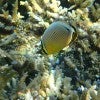
Fish thought to help reefs have poop that’s deadly to corals
Rice bioscientists have discovered the feces of fish that were long thought to promote healthy reefs can damage and, in some cases, kill corals.
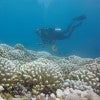
Ocean warming intensifies viral outbreaks within corals
A groundbreaking three-year study has found evidence that ocean warming can trigger outbreaks of viruses that attack the symbiotic algae inside corals.

Climate warming reduces organic carbon burial beneath oceans
A first-of-its-kind study suggests climate warming could reduce organic carbon burial and increase the amount of carbon that’s returned to the atmosphere.
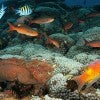
Climate risks for Gulf of Mexico coral reefs spelled out in study
Promptly reducing greenhouse emissions would give Gulf of Mexico corals up to 20 extra years to adapt to critical threshold temperatures, according to Rice research.

Adrienne Correa wins CAREER Award
Rice marine biologist Adrienne Correa has won a prestigious CAREER Award from the National Science Foundation.

Ancient El Niño behavior reveals limits to future climate projections
Study finds more research is needed to determine how climate change may impact El Niño.

Sylvia Dee wins fellowship to launch Gulf of Mexico study
Sylvia Dee, an assistant professor of Earth, environmental and planetary sciences, wins an early-career fellowship to pursue Gulf of Mexico research.
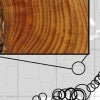
Nature’s archive reveals Atlantic tempests through time
Rice scientists uncover how natural archives can record Atlantic hurricane frequency over the past 1,000 years. SUMMARY: Rice University scientists uncover how natural archives can record Atlantic hurricane frequency over the past 1,000 years. More data is needed to help model how climate change will affect storms in the future.

Flatfish got weird fast due to evolutionary cascade
Flatfishes rapidly evolved into the most asymmetric vertebrates by changing multiple traits at once, according to a Rice University study.
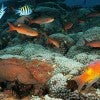
Houston flooding polluted reefs more than 100 miles offshore
Flower Garden Banks fouled by runoff from 2017's Harvey and 2016's Tax Day floods, Rice research finds.

Corals may need their predators' poop
Fish that dine on corals may pay it forward with poop. Rice University marine biologists found high concentrations of living symbiotic algae in the feces of coral predators on reefs in Mo'orea, French Polynesia.

Rice study to examine how ice melt in one area impacts sea level rise in another
How does ice melted by climate change in Greenland hit the shores of Honolulu?
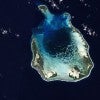
Study: Darwin's theory about coral reef atolls is fatally flawed
Rice marine geologist and oceanographer André Droxler knows Charles Darwin's theory about atoll formation is incorrect, and Droxler and former Rice postdoc Stéphan Jorry are hoping to set the record straight with a comprehensive new paper about the subject.

Ocean water could melt precarious Antarctic glacier
Rice University researchers, alumni and staff are part of an international effort that has discovered a pathway for warm ocean water to melt the underside of Thwaites Glacier, a precarious body of west Antarctic ice that could add as much as 25 inches to global sea level if it were to suffer a runaway collapse.